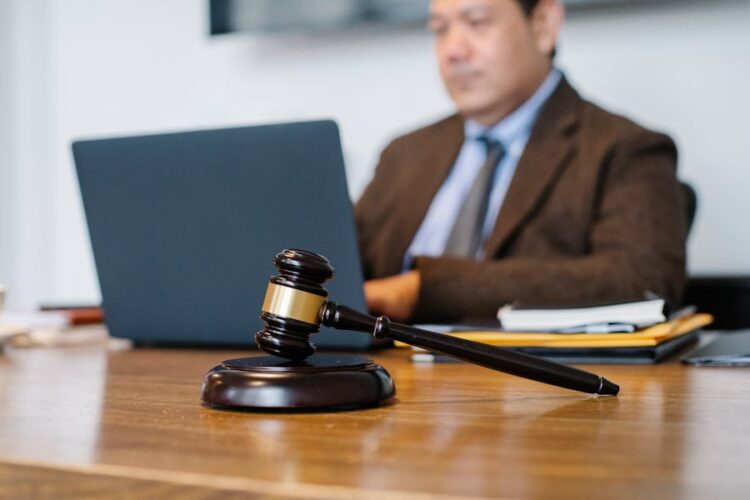When facing legal challenges, especially as a victim, it is important to seek the services of a lawyer to level the playing field. Every year, millions of Americans seek legal advice to understand their rights and options after falling victim to crimes, accidents, or disputes.A free consultation with an experienced attorney is pivotal to gathering essential information, establishing trust, and deciding on the best course of action.
It is important for victims to know more about a free lawyer consultation.Victims are encouraged to ask specific questions that shed light on the legal landscape, the attorney’s expertise, and potential strategies for their case. This crucial step allows victims to make informed decisions, ensuring they are well-prepared with the right questions to guide their path forward. Here’s a guide on what to ask during a free consultation with an attorney.
What Are My Legal Rights And Options?
Understanding your legal rights is a cornerstone in any legal matter. During the consultation, you must inquire about your rights under the relevant laws or regulations. For instance, personal injury victims may have rights to compensation for medical bills, lack of income, and pain and suffering. Victims of crimes may have rights to restitution or protection orders. By grasping your rights, you can make informed decisions about how to proceed with your case.
What Experience Do You Have With Cases Similar To Mine?
The attorney’s experience with cases similar to yours is a critical factor in ascertaining their suitability to handle your case effectively. Ask about their past cases, particularly those with circumstances similar to yours. Inquire about their success rate, notable outcomes, and familiarity with relevant laws and procedures. A seasoned attorney with experience and success in cases like yours is more likely to provide competent representation.
What Are The Possible Outcomes Of My Case?
While no advocate can guarantee a specific outcome, they should be able to provide an overview of the probable outcomes based on their experience and knowledge of the law. Ask the attorney to discuss your case’s best-case and worst-case scenarios and any potential challenges or obstacles that may arise. Understanding the possible outcomes can help you make informed decisions about proceeding with your case.
What Is The Likely Timeline For My Case?
Legal proceedings can be lengthy and complex, so it’s essential to have realistic expectations about the timeline for your case. Ask the attorney to estimate how long your case will likely take from start to finish. Factors such as the case’s complexity, the court’s schedule, and the availability of witnesses can all impact the timeline. Knowing the anticipated timeline can help you plan accordingly and avoid unnecessary delays.
How Do You Communicate With Clients?
Effective communication between you and your advocate is vital to the legal process. It’s important to ask the attorney about their typical communication methods with clients and the frequency of case updates. Inquire about their preferred communication channels, whether phone calls, emails, or in-person meetings, and their response time to client inquiries. Clear and frequent communication can ensure you are well-informed and actively involved in your case.
What Are Your Fees, And How Are They Structured?
Discussing fees before any process is essential to avoid any misunderstandings later on. Ask the attorney to explain their fee structure, including any upfront retainer fees, hourly rates, or contingency fees. Inquire about additional costs or expenses incurred during your case, such as litigation or expert witness fees.
Can You Walk Me Through Your Strategy For My Case?
A well-thought-out strategy is essential for achieving a successful outcome in your case. Ask the attorney to outline their proposed strategy for handling your case, including any legal arguments they plan to make or evidence they intend to present. Inquire about their approach to negotiations, mediation, or trial proceedings, depending on the nature of your case. A clear and cohesive strategy can instill confidence in your attorney’s ability to advocate effectively.
What Do You Need From Me To Get Started?
Cooperation between you and your attorney is critical to the success of your case. Ask the attorney what information, documents, or evidence they need from you to begin working on your case.
What Are The Potential Challenges Or Risks In My Case?
Every case presents its own unique challenges and risks. Ask the attorney to identify any potential obstacles or pitfalls that may arise during your case. Inquire about their strategies for addressing these challenges and mitigating any associated risks.
How Do We Measure Success In My Case?
Ask the attorney how they define success in your case and what specific outcomes they are working toward on your behalf. Whether securing a favorable settlement, winning a court verdict, or simply achieving a sense of closure and justice, understanding what success looks like can help you align your expectations with your attorney’s goals and objectives.
Can You Give References From Past Clients With Similar Cases?
References or testimonials from past clients or completed cases can provide valuable insight into the attorney’s reputation, professionalism, and quality of service. Ask the attorney if they can provide references from clients with similar legal issues or cases. Contacting these references and hearing about their experiences firsthand can help you gauge the attorney’s competence, reliability, and effectiveness in handling cases like yours.
What Are The Next Steps If I Decide To Hire You?
If you’re satisfied with the attorney’s responses to your questions and feel confident in their ability to represent you effectively, you may hire them to handle your case. Ask the attorney what the next steps would be if you retained their services. This question may include signing a retainer agreement, paying legal fees, and beginning work on your case.
In conclusion, victims should utilize these questions during a free consultation to ensure they select an attorney who is skilled and suitable for their needs. Preparedness in this initial meeting can set the stage for a more informed and effective legal process.










